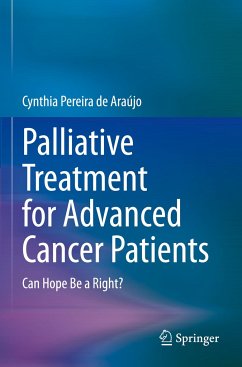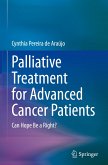This book presents an important reflection on the concept and limits of the Fundamental Right to Health as opposed to a supposed "Right to Hope" in the context of the treatment of patients with advanced cancer. The central idea of the work is the question of whether and to what extent patients with advanced cancer have the right to legally demand a palliative treatment whose efficacy has not been proven from the point of view of the desired objectives. The book demonstrates how hope cannot be subject to legal protection and, also, that, even if theoretical-legal reasons were not sufficient for the absence of an abstract right to hope, ethical reasons would be. The work concludes that the best palliative care, rather than palliative treatment, guarantees the best right to health for advanced cancer patients, especially in terminal cases.
In addition to this theoretical discussion, the book also presents the results of a qualitative research the author conducted with 48 advancedcancer patients in Brazil and Germany to investigate their expectations towards chemotherapy. This study has confirmed that many patients decide to undergo often toxic and exhausting treatments, unrealistically believing that their cancer is curable or that, as long as they continue with a course of chemotherapy, cancer may be beaten.
Palliative Treatment for Advanced Cancer Patients: Can Hope Be a Right? will be of interest to health professionals and social workers working with advanced cancer patients, as well as to researchers in the fields of public health, bioethics, medical ethics and health law, especially those interested in the growing interdisciplinary field of end-of-life decision-making.
In addition to this theoretical discussion, the book also presents the results of a qualitative research the author conducted with 48 advancedcancer patients in Brazil and Germany to investigate their expectations towards chemotherapy. This study has confirmed that many patients decide to undergo often toxic and exhausting treatments, unrealistically believing that their cancer is curable or that, as long as they continue with a course of chemotherapy, cancer may be beaten.
Palliative Treatment for Advanced Cancer Patients: Can Hope Be a Right? will be of interest to health professionals and social workers working with advanced cancer patients, as well as to researchers in the fields of public health, bioethics, medical ethics and health law, especially those interested in the growing interdisciplinary field of end-of-life decision-making.








